
Tafelberg Nature Reserve: The Untouched Wilderness of Suriname
Tafelberg Nature Reserve, located in the heart of Suriname, is a pristine sanctuary for nature enthusiasts and adventure seekers alike. This remote reserve is known for its stunning table mountain, which rises majestically above the dense rainforest canopy. The reserve's untouched beauty offers a rare glimpse into one of the world's most biodiverse regions. Visitors to Tafelberg can explore a variety of terrains, from lush tropical forests to rugged mountain trails. The reserve is home to a rich array of wildlife, including jaguars, giant anteaters, and over 400 species of birds. The flora is equally impressive, with countless plant species, many of which are endemic to the region. Hiking is a popular activity here, with trails that lead to breathtaking viewpoints and hidden waterfalls. For those looking for a more challenging adventure, the climb to the summit of the table mountain offers spectacular panoramic views of the surrounding landscape. Whether you are a seasoned hiker or a casual nature lover, Tafelberg Nature Reserve promises an unforgettable experience in one of South America's last great wildernesses.
Local tips in Tafelberg Nature Reserve
- Plan your visit during the dry season (August to November) for the best hiking conditions.
- Hire a local guide to enhance your experience and ensure your safety on the trails.
- Bring insect repellent and wear long sleeves to protect against mosquitoes and other insects.
- Carry sufficient water and snacks, as there are no facilities within the reserve.
- Respect the natural environment by staying on marked trails and not disturbing the wildlife.
Tafelberg Nature Reserve: The Untouched Wilderness of Suriname
Tafelberg Nature Reserve, located in the heart of Suriname, is a pristine sanctuary for nature enthusiasts and adventure seekers alike. This remote reserve is known for its stunning table mountain, which rises majestically above the dense rainforest canopy. The reserve's untouched beauty offers a rare glimpse into one of the world's most biodiverse regions. Visitors to Tafelberg can explore a variety of terrains, from lush tropical forests to rugged mountain trails. The reserve is home to a rich array of wildlife, including jaguars, giant anteaters, and over 400 species of birds. The flora is equally impressive, with countless plant species, many of which are endemic to the region. Hiking is a popular activity here, with trails that lead to breathtaking viewpoints and hidden waterfalls. For those looking for a more challenging adventure, the climb to the summit of the table mountain offers spectacular panoramic views of the surrounding landscape. Whether you are a seasoned hiker or a casual nature lover, Tafelberg Nature Reserve promises an unforgettable experience in one of South America's last great wildernesses.
When is the best time to go to Tafelberg Nature Reserve?
Iconic landmarks you can’t miss
Fort Zeelandia
Explore Fort Zeelandia, a historic fort and museum in Paramaribo, Suriname, showcasing the nation's colonial past and rich cultural heritage.
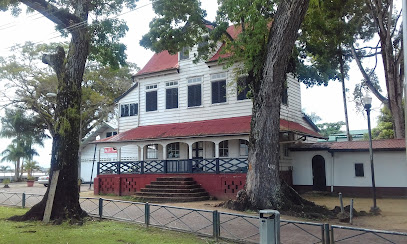
Brownsberg
Explore Brownsberg Park, a nature lover's paradise in Suriname, featuring hiking trails, stunning waterfalls, and vibrant wildlife waiting to be discovered.
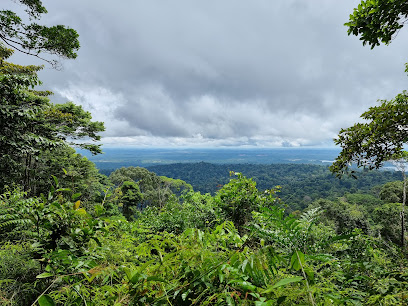
Peperpot Nature Park
Explore the natural beauty and rich biodiversity of Peperpot Nature Park, a serene escape in Suriname awaiting nature lovers and adventurers alike.
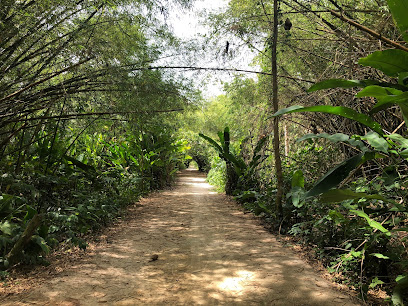
Bigi Pan
Explore the enchanting biodiversity and serene landscapes of Bigi Pan National Park in Suriname, a true haven for nature lovers and adventure seekers.
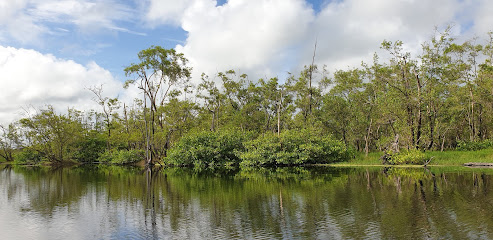
Neotropical Butterfly Park
Experience the vibrant beauty of the Neotropical Butterfly Park in Lelydorp, where thousands of butterflies create a tropical paradise for nature lovers and explorers.
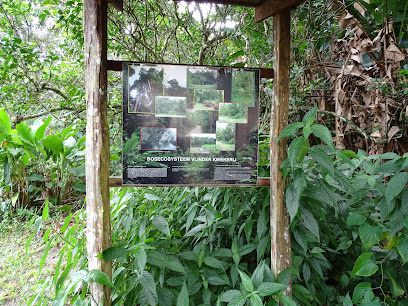
Voltz Berg
Explore the untouched beauty of Voltz Berg, a breathtaking mountain peak in Suriname, perfect for nature lovers and adventure seekers.
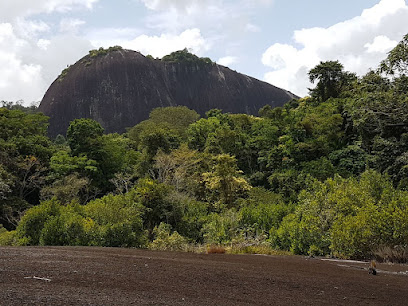
Historic Innercity of Paramaribo
Explore the Historic Inner City of Paramaribo, a UNESCO World Heritage site rich in colonial architecture and vibrant Surinamese culture.
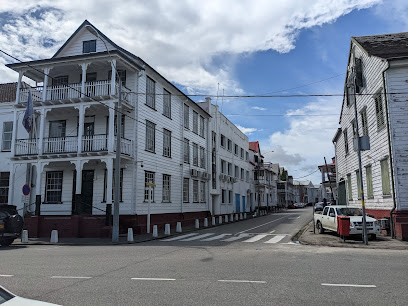
Tafelberg
Explore Tafelberg, Suriname's stunning mountain peak, where breathtaking views and rich biodiversity await adventurous travelers.
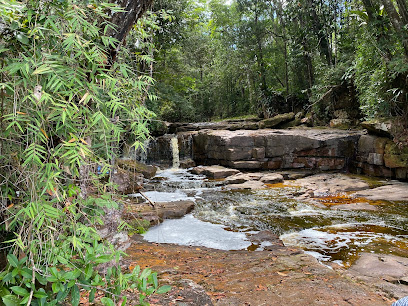
Unlock Nature
Explore the breathtaking landscapes and rich biodiversity of Suriname with Unlock Nature, your ultimate adventure tour operator.
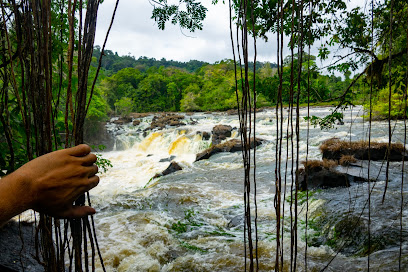
Galibi Nature Reserve
Experience the untouched wilderness of Galibi Nature Reserve, a biodiversity hotspot in Suriname perfect for eco-tourism and nature exploration.
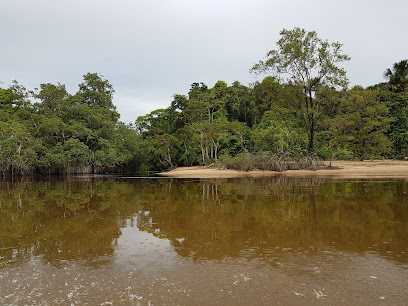
Raleighvallen
Discover Raleighvallen, Suriname's stunning rapids and lush rainforest, perfect for adventure seekers and nature lovers alike.

Unmissable attractions to see
Palmtree Garden
Explore the tranquil beauty of Palmtree Garden, a lush oasis in Paramaribo filled with palm trees, vibrant flora, and captivating sculptures.
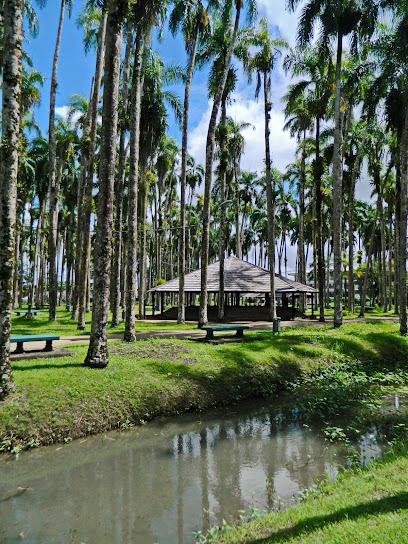
Fort Zeelandia
Explore Fort Zeelandia, a historical fort and museum in Paramaribo, Suriname, where the rich colonial past meets stunning river views.
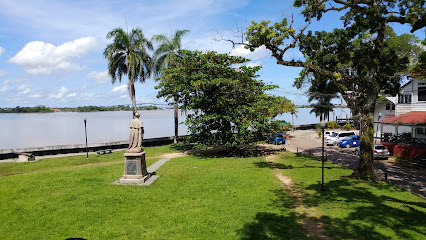
Brownsberg
Explore the lush landscapes and vibrant wildlife of Brownsberg, a serene park in Suriname perfect for nature lovers and adventure seekers.
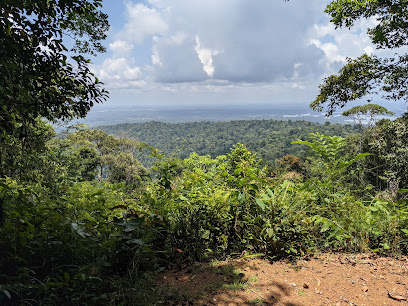
Jules Wijdenbosch Bridge
Explore the breathtaking Jules Wijdenbosch Bridge in Paramaribo, Suriname, a stunning architectural marvel and vibrant tourist attraction.
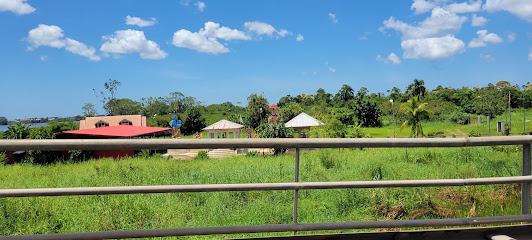
Neotropical Butterfly Park
Explore the enchanting Neotropical Butterfly Park, a vibrant garden sanctuary showcasing a stunning variety of butterflies in Suriname's lush tropical landscape.
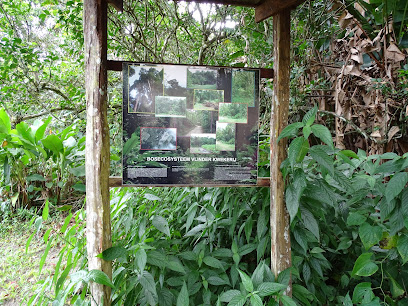
Tapawatra sula
Experience the stunning landscapes and rich biodiversity of Tapawatra Sula in Djumu, Suriname, a must-visit destination for nature enthusiasts.
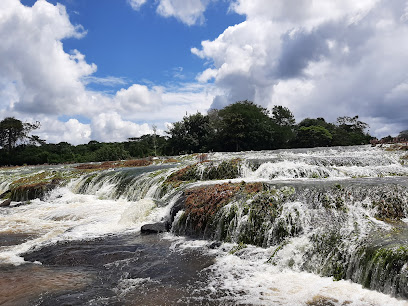
Historic Innercity of Paramaribo
Discover the enchanting Historic Innercity of Paramaribo, a UNESCO World Heritage Site brimming with colonial charm and cultural richness.
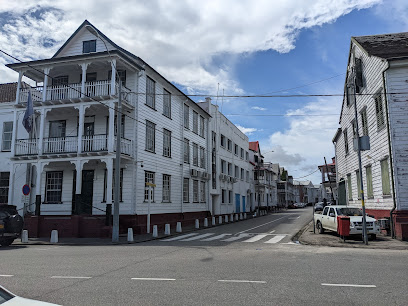
Tafelberg
Discover the stunning Tafelberg in Suriname, a majestic mountain peak offering breathtaking views and immersive nature experiences for every traveler.
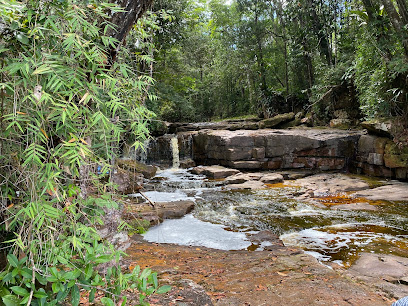
Raleighvallen
Experience the thrill of nature at Raleighvallen, Suriname's premier destination for rapids and stunning wildlife immersion.

Essential places to dine
Zus & Zo
Experience authentic Surinamese flavors at Zus & Zo in Paramaribo—where culinary tradition meets modern hospitality.
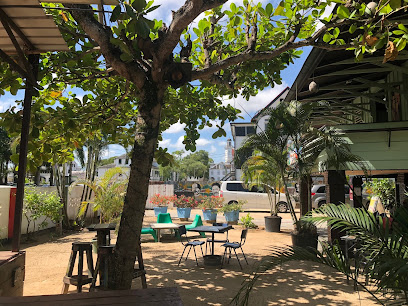
Restaurant Sarinah
Discover the rich tastes of Indonesia at Restaurant Sarinah in Paramaribo - a must-visit for culinary explorers.
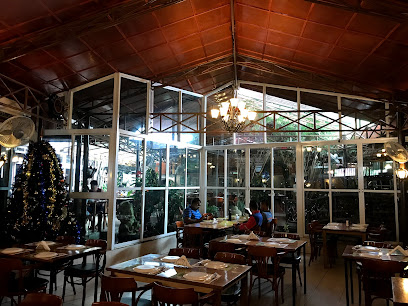
Garden of Eden
Experience authentic Thai flavors at the Garden of Eden in Paramaribo - where culinary artistry meets serene ambiance.
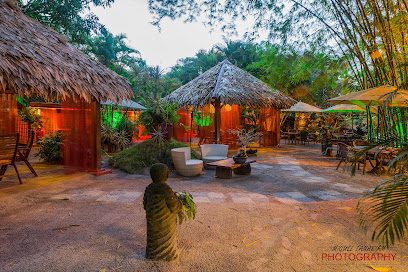
SOUPOSO
Experience authentic Surinamese cuisine at SOUPOSO in Paramaribo - where every dish tells a story.
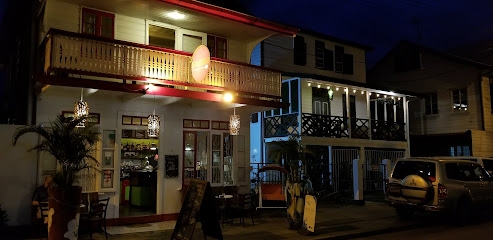
De Gadri
Experience authentic Surinamese cuisine at De Gadri in Paramaribo—where every dish tells a story.
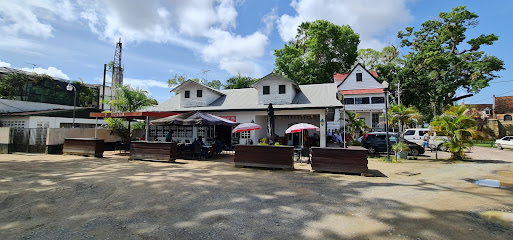
Sushi-Ya
Experience authentic Japanese flavors at Sushi-Ya in Paramaribo – where fresh ingredients meet traditional techniques.
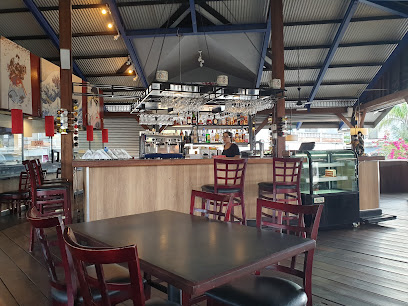
Roti Shop Joosje
Discover authentic Surinamese flavors at Roti Shop Joosje in Paramaribo – where delicious roti meets vibrant culture.
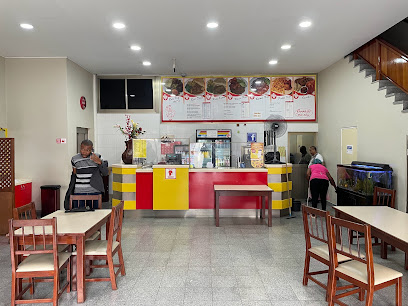
Riverside
Experience exquisite grilled cuisine at Riverside in Paramaribo while enjoying serene waterside views - perfect for every occasion.
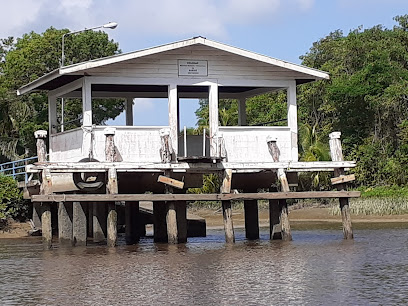
Padre Nostro
Experience authentic Italian cuisine and delightful ice cream at Padre Nostro in Paramaribo - where every meal feels like a celebration.
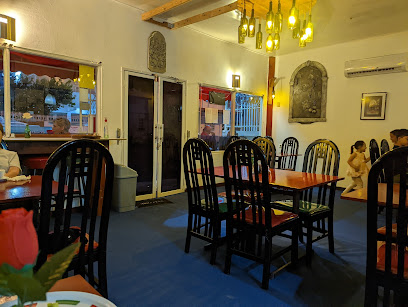
Baka Foto
Experience the unique flavors of Suriname at Baka Foto in Fort Zeelandia - a culinary delight amidst historical splendor.
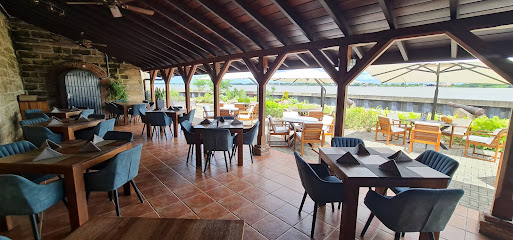
Don Julio
Experience vibrant Caribbean flavors and lively Cuban rhythms at Don Julio in Paramaribo—a culinary destination not to be missed.
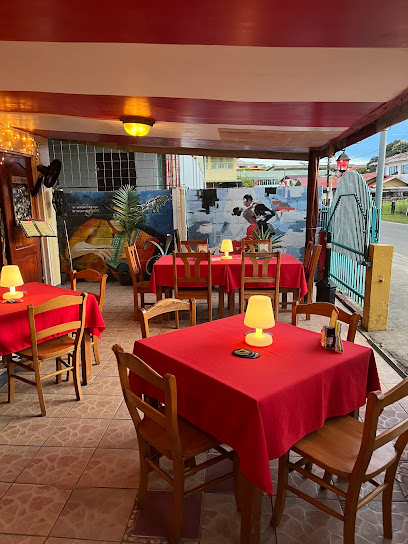
Bamboo Green Garden
Experience authentic Chinese flavors at Bamboo Green Garden in Paramaribo, where serene surroundings meet delightful dishes.
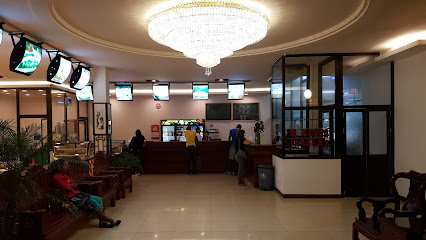
Warung Manis
Savor authentic Indonesian cuisine at Warung Manis in Paramaribo - a culinary journey filled with rich flavors and warm hospitality.
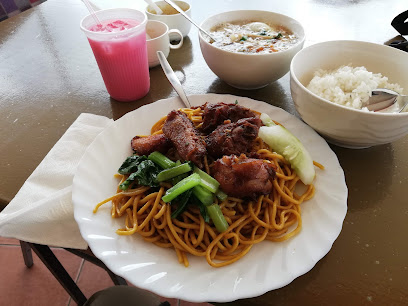
Twins Pizza & Burgers
Discover the vibrant flavors at Twins Pizza & Burgers in Paramaribo – where delicious pizza meets juicy burgers.
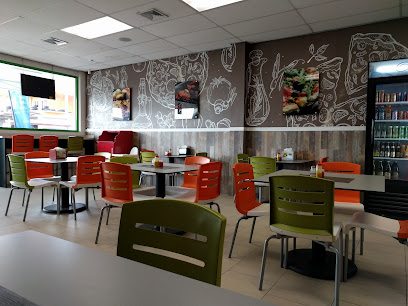
Fun Tu
Experience authentic Chinese cuisine at Fun Tu Restaurant in Paramaribo - where traditional flavors meet vibrant ambiance.
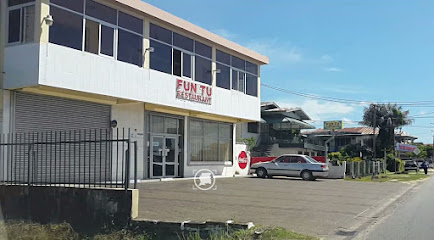
Markets, malls and hidden boutiques
Fort Zeelandia
Explore Fort Zeelandia, a historic fort and museum in Paramaribo, Suriname, revealing the rich colonial heritage and diverse culture of the region.
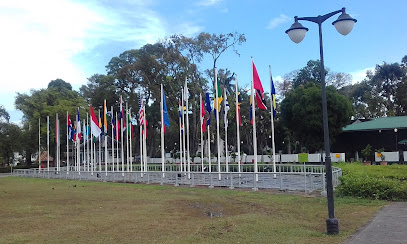
Brownsberg
Explore the rich biodiversity and breathtaking landscapes of Brownsberg Nature Park, a must-visit destination for nature lovers in Suriname.
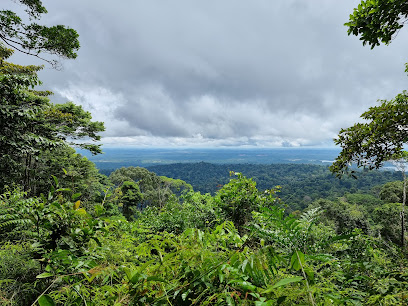
Peperpot Nature Park
Explore Peperpot Nature Park, a tranquil nature preserve in Suriname, offering scenic trails, diverse wildlife, and a peaceful escape into nature's beauty.
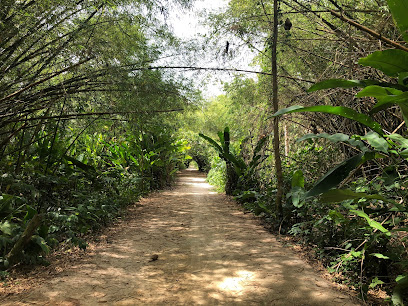
Bigi Pan
Explore Bigi Pan, Suriname's enchanting national park teeming with wildlife and lush landscapes, perfect for nature enthusiasts and adventure seekers.
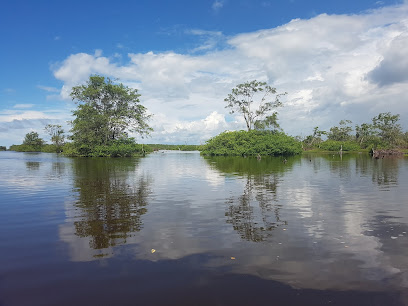
Neotropical Butterfly Park
Discover the beauty of nature at Neotropical Butterfly Park, a stunning garden filled with vibrant butterflies and educational exhibits in Lelydorp, Suriname.
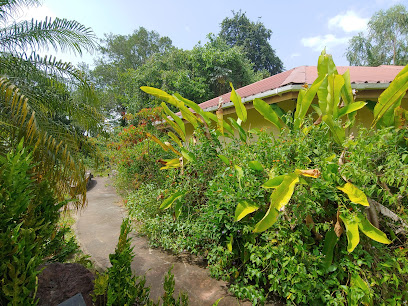
Eilerts De Haan Nature Preserve
Explore the lush landscapes and rich biodiversity of Eilerts De Haan Nature Preserve, Suriname's premier national park for nature lovers and adventurers.
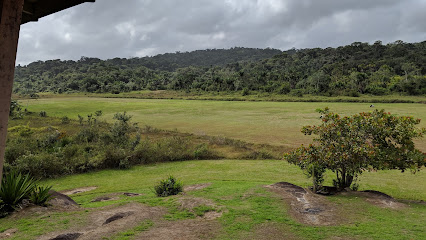
La belle Giftworld
Explore La Belle Giftworld in Paramaribo for unique Surinamese crafts and souvenirs that embody the spirit of your travels.
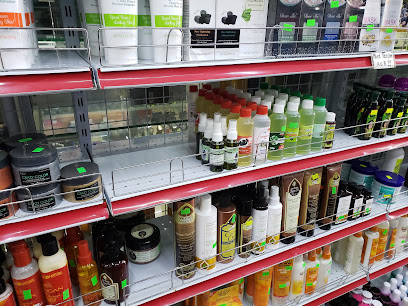
Tafelberg
Discover the breathtaking beauty of Tafelberg, Suriname's majestic mountain peak, a paradise for hikers and nature lovers seeking adventure.
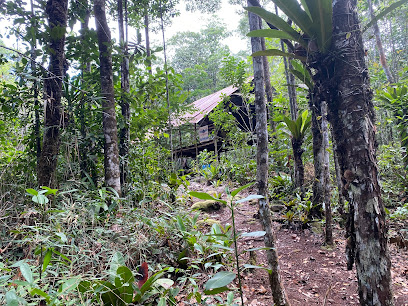
Galibi Nature Reserve
Experience the breathtaking landscapes and diverse wildlife at Galibi Nature Reserve, a pristine haven for nature lovers in Suriname.
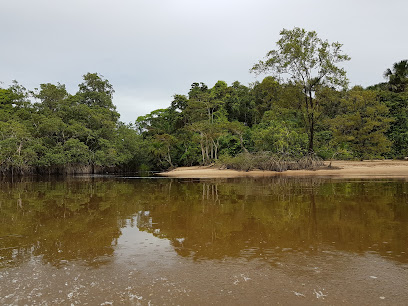
Gifted
Discover the essence of Suriname with unique gifts and local crafts at Gifted in Paramaribo.
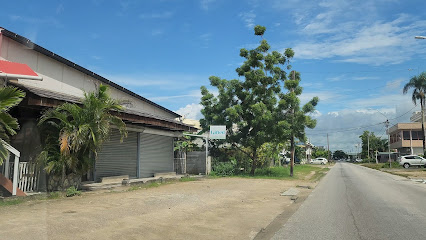
Fantabulous Gifts & More
Discover a world of unique gifts and local treasures at Fantabulous Gifts & More, where every item tells a story.

Essential bars & hidden hideouts
Zus & Zo
Discover the flavors of Suriname at Zus & Zo, a vibrant restaurant in Paramaribo offering diverse dishes and a welcoming atmosphere.
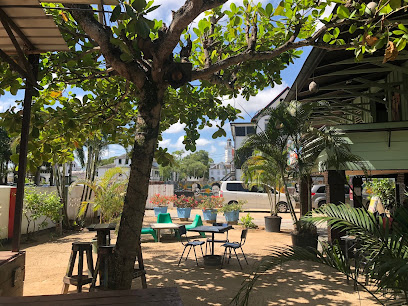
Garden of Eden
Experience the essence of Thai culinary art at the Garden of Eden in Paramaribo, where every dish tells a story of flavor and tradition.
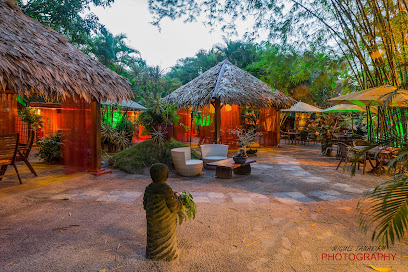
De Gadri
Experience the vibrant flavors of Suriname at De Gadri, a culinary gem in Paramaribo serving authentic and delicious Surinamese cuisine.
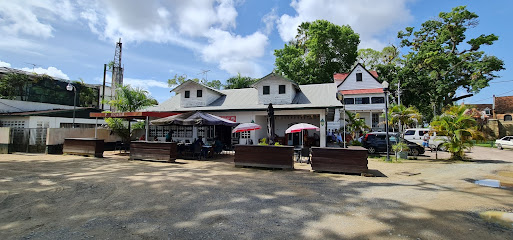
Bar Zuid
Discover the vibrant nightlife of Paramaribo at Bar Zuid, where local culture meets lively entertainment and delicious drinks.
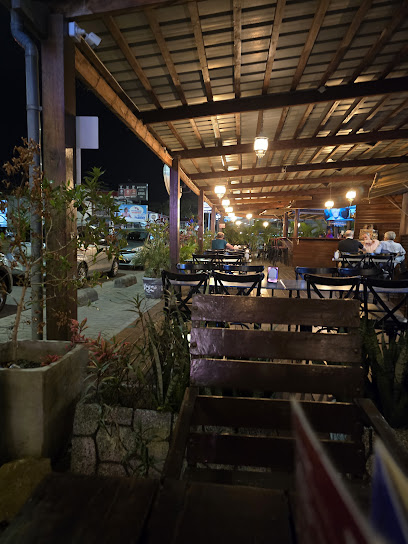
Padre Nostro
Discover authentic Italian cuisine and delightful ice creams at Padre Nostro, a must-visit restaurant in Paramaribo, Suriname.
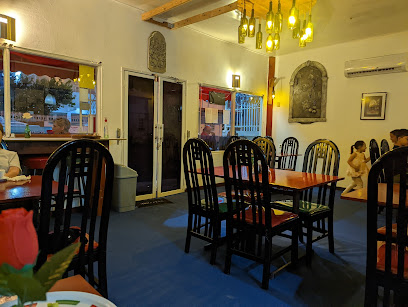
River Breeze - Marina Suriname
Experience the flavors of Suriname at River Breeze, where delicious cuisine meets breathtaking river views in Domburg.
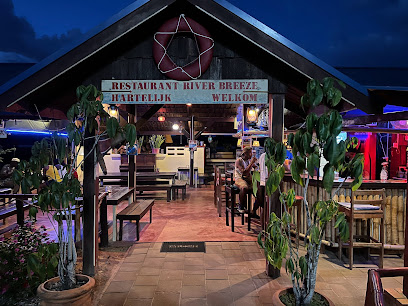
D'Bar
Experience the vibrant nightlife of Paramaribo at D'Bar, where amazing cocktails and local music create unforgettable evenings.
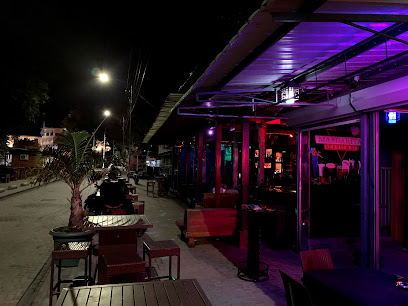
E'tembe Rainforest Restaurant
Experience the flavors of Suriname at E'tembe Rainforest Restaurant, where culinary delights meet the beauty of nature in Paramaribo.
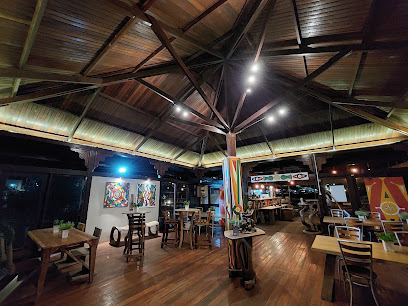
Restaurant L'Hermitage Suriname
Experience the rich flavors of Suriname at Restaurant L'Hermitage, where culinary artistry meets warm hospitality in the heart of Paramaribo.
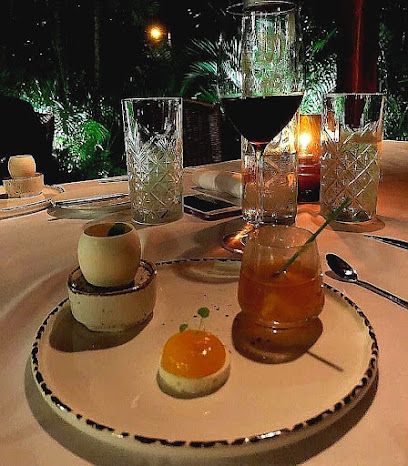
Eetcafe Paramaribo
Discover the flavors of Suriname at Eetcafe Paramaribo, a beloved restaurant offering a rich culinary experience in a cozy setting.
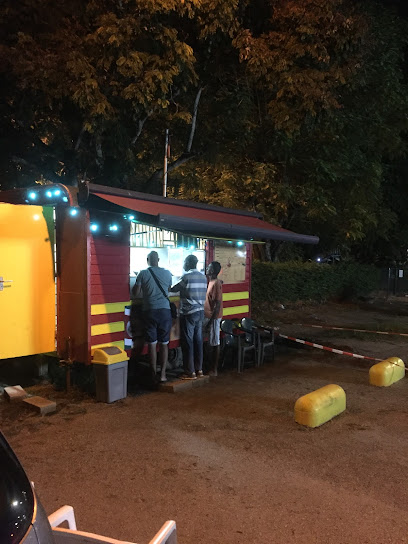
TAPAMOFO BURGERS
Experience the ultimate burger indulgence at Tapamofo Burgers in Paramaribo, where every bite tells a story of taste and tradition.
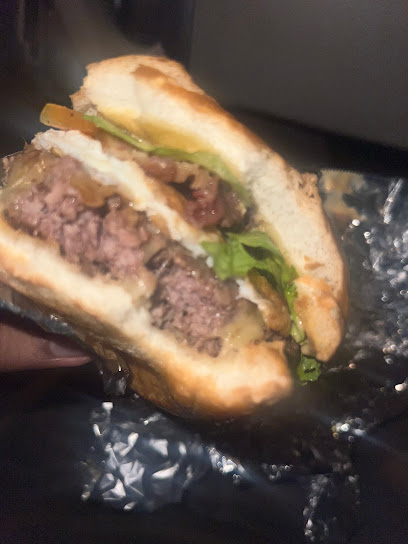
Bori Tori
Discover the flavors of Suriname at Bori Tori, a charming restaurant in Paramaribo offering authentic local dishes and a warm atmosphere.
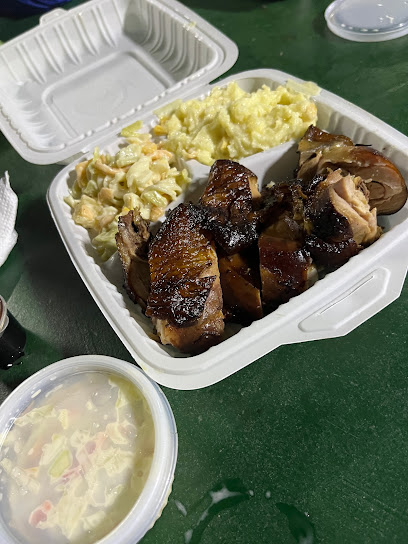
Taste 'nd crave
Taste 'nd Crave offers a delightful fast food experience in Lelydorp, Suriname, perfect for tourists seeking quick and tasty local cuisine.

Big Tex BBQ Suriname
Experience the authentic taste of Suriname at Big Tex BBQ, where delicious barbecue meets a vibrant atmosphere in Paramaribo.
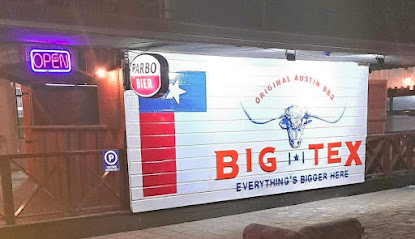
Local Phrases about Tafelberg Nature Reserve
-
- HelloKukru
[koo-kroo] - GoodbyeBai bai
[bye-bye] - YesYa
[yah] - NoNo
[noh] - Please/You're welcomeMi Seni
[mee sey-nee] - Thank youTan bun
[tahn boon] - Excuse me/SorrySori
[soh-ree] - How are you?Fa yu de?
[fah yoo dey] - Fine. And you?Beti. A yu?
[bey-tee. ah yoo] - Do you speak English?Yu taki Inglish?
[yoo tah-kee een-glish] - I don't understandMi no sabi
[mee noh sah-bee]
- HelloKukru
-
- I'd like to see the menu, pleaseMi e luku menu, mi begi
[mee ay loo-koo men-oo, mee bay-gee] - I don't eat meatMi no e nyan meti
[mee noh ay nee-ahn mey-tee] - Cheers!Proost!
[prohst] - I would like to pay, pleaseMi e wani pai, mi begi
[mee ay wah-nee pie, mee bay-gee]
- I'd like to see the menu, pleaseMi e luku menu, mi begi
-
- Help!Ripoti!
[ree-poh-tee] - Go away!Go wegi!
[goh wey-gee] - Call the Police!Bel politie!
[behl poh-lee-tee] - Call a doctor!Bel dokter!
[behl dohk-tehr] - I'm lostMi de verlore
[mee dey fehr-loh-rey] - I'm illMi e si
[mee ay see]
- Help!Ripoti!
-
- I'd like to buy...Mi e wani bai...
[mee ay wah-nee buy...] - I'm just lookingMi e wroko
[mee ay wroh-koh] - How much is it?Fa a kostu?
[fah ah kohs-too] - That's too expensiveDat e te duur
[daht ay tay duhr] - Can you lower the price?Yu kan meki a pris lower?
[yoo kahn mey-kee ah prees loh-wer]
- I'd like to buy...Mi e wani bai...
-
- What time is it?Fa a ten?
[fah ah tehn] - It's one o'clockNa wan ten
[nah wahn tehn] - Half past (10)Ten pas half
[tehn pahs hahf] - MorningMownin
[moh-ning] - AfternoonNeti
[ney-tee] - EveningAfonu
[ah-foh-noo] - YesterdayDeyari
[dey-ya-ree] - TodayDey
[dey] - TomorrowMorgu
[mohr-goo] - 1Wan
[wahn] - 2Tu
[too] - 3Trei
[tray] - 4Fu
[foo] - 5Fayfi
[fay-fee] - 6Siki
[see-kee] - 7Sebi
[seh-bee] - 8Aiti
[ah-ee-tee] - 9Nain
[nayn] - 10Ten
[tehn]
- What time is it?Fa a ten?
-
- Where's a/the...?Fa a...
[fah ah...] - What's the address?Fa a adres?
[fah ah ah-drehs] - Can you show me (on the map)?Yu kan sroto mi (opu a mapu)?
[yoo kahn sroh-toh mee (oh-poo ah mah-poo)] - When's the next (bus)?Fa a bus e kon?
[fah ah boos ay kohn] - A ticket (to ....)Wan tiketi (te ...)
[wahn tee-keh-tee (tey ...)]
- Where's a/the...?Fa a...
History of Tafelberg Nature Reserve
-
Long before European explorers set foot in South America, the Tafelberg region was home to indigenous tribes. The Amerindian peoples, including the Trio and Wayana tribes, utilized the area for hunting, fishing, and gathering. Their intricate knowledge of the flora and fauna in Tafelberg has been passed down through generations and remains a crucial part of their cultural heritage.
-
In the mid-19th century, the German-born British explorer Robert Herman Schomburgk was one of the first Europeans to explore the interior of Suriname, including the Tafelberg area. His detailed maps and observations provided valuable information about the region's geography and natural resources, contributing to the broader scientific understanding of South America's interior.
-
Tafelberg Nature Reserve was officially established in 1973 as part of the larger Central Suriname Nature Reserve. This initiative aimed to protect the rich biodiversity and unique ecosystems found in the area, including the distinct tabletop mountain, Tafelberg, which stands at 1,026 meters. The reserve serves as a crucial habitat for numerous plant and animal species, some of which are endemic to the region.
-
In 2000, the Central Suriname Nature Reserve, which includes Tafelberg, was designated a UNESCO World Heritage Site. This recognition highlighted the area's outstanding universal value, particularly its pristine rainforests, unique geological formations, and diverse wildlife. It also emphasized the importance of ongoing conservation efforts to preserve this natural treasure for future generations.
-
Over the years, Tafelberg Nature Reserve has been a focal point for scientific research. Numerous expeditions have uncovered new species of plants, insects, and amphibians, further underscoring the area's ecological significance. Researchers continue to study the region to better understand its complex ecosystems and the impacts of climate change on its biodiversity.
-
Tafelberg holds a deep cultural significance for the indigenous communities living in and around the reserve. It is considered a sacred site, with numerous legends and stories tied to its landscape. The mountain and its surrounding forests play a central role in traditional practices, rituals, and the spiritual life of the local tribes, reflecting a profound connection to the land.
Tafelberg Nature Reserve Essentials
-
Tafelberg Nature Reserve is located in the Central Suriname Nature Reserve. The most common way to reach Tafelberg is by taking a domestic flight from Johan Adolf Pengel International Airport in Paramaribo to the airstrip at Kabalebo or a nearby location. From there, you can arrange for a guided tour or transport to the reserve. Alternatively, you can reach Tafelberg via a combination of road and river transport, though this method is more time-consuming and requires meticulous planning.
-
Within Tafelberg Nature Reserve, transportation options are limited due to its remote location. Most visitors rely on guided tours that include transportation by boat, 4x4 vehicles, and on foot. Local guides are highly recommended for navigating the dense jungle and ensuring a safe and informative visit. If you plan on exploring independently, ensure you are well-prepared with maps, GPS, and emergency communication devices.
-
The official currency in Suriname is the Surinamese Dollar (SRD). Credit cards are accepted in major hotels and some establishments in Paramaribo, but in remote areas like Tafelberg Nature Reserve, cash is essential. It is advisable to carry sufficient SRDs, as ATMs and banking facilities are not available within the reserve. Ensure you exchange currency or withdraw cash in Paramaribo before embarking on your journey.
-
Tafelberg Nature Reserve is generally safe for tourists, but standard precautions should be taken. Avoid wandering off alone into the jungle without a guide. Keep personal belongings secure and be vigilant in crowded areas during your transit through cities. While there are no specific high-crime areas targeting tourists within the reserve, it is always best to stay aware of your surroundings, especially in urban areas.
-
In case of emergency, contact local authorities or your tour guide immediately. Ensure you have a satellite phone or other reliable means of communication, as mobile phone coverage is limited. Medical facilities are not available within the reserve, so carry a well-stocked first aid kit and any necessary medications. It is highly recommended to have travel insurance that covers medical emergencies and evacuation.
-
Fashion: Do wear lightweight, breathable clothing suitable for tropical climates. Long sleeves and pants are recommended to protect against insects. Don't wear flashy or overly revealing clothing. Religion: Do respect local customs and traditions. Public Transport: Do be respectful and patient, as transportation options may be limited and schedules flexible. Don't expect the same level of punctuality as in urban areas. Greetings: Do greet locals with a friendly nod or handshake. Don't be overly familiar without invitation. Eating & Drinking: Do try local foods and accept hospitality graciously. Don't refuse food or drink offered by your hosts, as it may be considered impolite.
-
To experience Tafelberg Nature Reserve like a local, engage with your guides and locals you meet. They can offer unique insights and stories about the area's history and ecology. Don't miss the opportunity to hike to the summit of Tafelberg for breathtaking views. Participate in bird-watching and wildlife tours to see the diverse fauna of the region. Lastly, consider visiting nearby indigenous villages to learn about local culture and traditions.
Nearby Cities to Tafelberg Nature Reserve
-
Things To Do in Lelydorp
-
Things To Do in Paramaribo
-
Things To Do in Skeldon
-
Things To Do in Mariënburg
-
Things To Do in Kwakwani
-
Things To Do in Moengo
-
Things To Do in Albina
-
Things To Do in Ituni
-
Things To Do in New Amsterdam
-
Things To Do in Linden
-
Things To Do in Bartica
-
Things To Do in Lethem
-
Things To Do in Anna Regina
-
Things To Do in Kamarang
-
Things To Do in Princes Town







